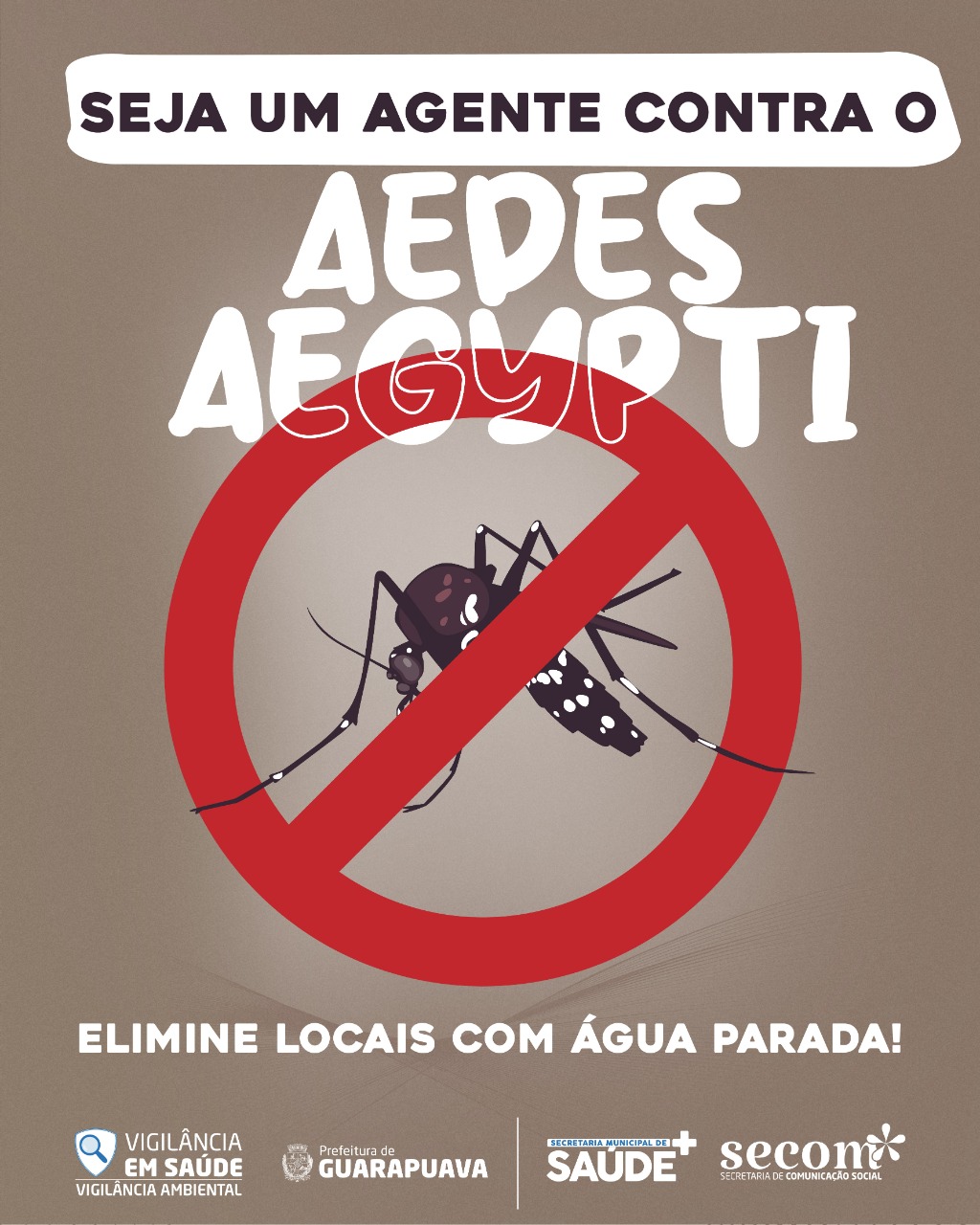From 10/24 to 11/11, the Department of Health, through the Environmental Health Surveillance Department, has informed that it will conduct the sixth rapid survey of the infestation rate of the Aedes aegypti mosquito (LIRAa) in Guarapuava..
The city’s National Dengue Control Program (PNCD) coordinator, Sabina Corrie, spoke about the importance of this survey.
“This LIRAa will be considered the most important of the year, being conducted before summer and rainy season and (from) high temperatures, which is the time when Aedes have the greatest chance of spreading,” Sabina explained. .
The Rapid Indicators of Aedes aegypti Survey (LIRAa) is a methodology that enables rapid knowledge, by sampling, of the number of characteristics with recipients having Aedes aegypti larvae, the mosquitoes that transmit dengue, Chikungunya, Zika virus and yellow fever.
The results obtained allow managers to evaluate already developed activities and reorient vector control measures, as well as indicate the deposits most used by mosquitoes for laying eggs.
LIRAa is also an important source of information for social mobilization, seeking to raise awareness and direct the view of the population to the specific problems in their area, so that measures are taken to prevent diseases transmitted by this vector.
Sabina also explained how the work will be developed by the municipal health teams. “Agents will examine sediments with favorable conditions for mosquito breeding, collect samples of larvae, and after the results, we will know the most widespread breeding sites. In addition, this assessment makes it possible to guide control measures,” he explained.
For the mayor of Guarapuava, Celso Góes, preventing any kind of potential disease outbreak should be a priority in the municipality. He remembers that the country is still suffering from the consequences of COVID-19 and it is necessary to take this critical period as an example for prevention.
“Every one of us has a duty as a citizen to fight all outbreaks of diseases. We have not even left a critical period due to COVID-19, therefore, we must always be vigilant for any possibility of the emergence of other diseases. We are not just fighting a single mosquito, but we are removing the inconvenience and saving the lives of our residents” The mayor confirms.
The Ministry of Health also warns of the care and preventive measures that the population needs to prevent the spread of mosquitoes.
With the advent of summer, the period of heat and rain is favorable for the reproduction of Aedes aegypti. Residents should be aware and contribute by avoiding standing water, covering barrels, wells, cisterns and reservoirs and placing fine sand on the edge of containers with plants.
Complaints about potential dengue outbreaks can be submitted through the Ombudsman channel, by phone: 156.

“Wannabe internet buff. Future teen idol. Hardcore zombie guru. Gamer. Avid creator. Entrepreneur. Bacon ninja.”

